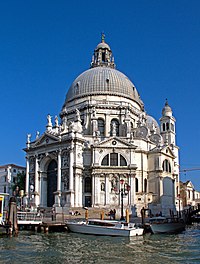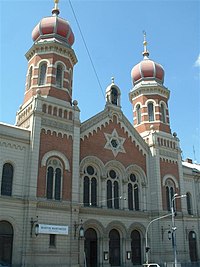
Back الدين في الاتحاد الأوروبي Arabic Θρησκεία στην Ευρωπαϊκή Ένωση Greek Religión en la Unión Europea Spanish Religion dans l'Union européenne French Religija u Europskoj uniji Croatian Religion in le Union Europee Interlingua Religie in de Europese Unie Dutch Religia w Unii Europejskiej Polish Avrupa Birliği'nde din Turkish Релігія в Європейському Союзі Ukrainian
Religion in the European Union (2021)[1]









Religion in the European Union is diverse. The largest religion in the EU is Christianity, which accounted for 72.8% of EU population as of 2018[update].[2] Smaller groups include those of Islam, Buddhism, Judaism, Hinduism, and some East Asian religions, most concentrated in Germany and France. Also present are revival movements of pre-Christianity European folk religions including Heathenism, Rodnovery, Romuva, and Druidry.[3]
Over the last several decades, religious practice has been on the decline in a process of secularisation.[4] Eurostat's Eurobarometer survey in 2010 showed that 20% of EU citizens don't believe there is any sort of spirit, god, or life force.[5] Many countries have experienced falling church attendance and membership in recent years.[6]
The countries with the most people reporting no belief in any sort of spirit, god, or higher power are France (40%), Czech Republic (37%), Sweden (34%), Netherlands (30%), Estonia (29%), Germany (27%), Belgium (27%) and Slovenia (26%).[5] The most religious countries are Romania (1% non-believers) and Malta (2% non-believers).[5] Across the EU, belief is more common with older age and is higher amongst women, those with only basic education, and those "positioning themselves on the right of the political scale (57%)".[7]
- ^ "Special Eurobarometer 516 : European citizens' knowledge and attitudes towards science and technology". European Union: European Commission. September 2021. Retrieved 11 June 2023 – via European Data Portal (see Volume B: EU/socio-demographics: Question D90.2. "Do you consider yourself to be...").
- ^ "Eurobarometer 90.4 (December 2018): Attitudes of Europeans towards Biodiversity, Awareness and Perceptions of EU customs, and Perceptions of Antisemitism", Special Eurobarometer, European Union: European Commission, 2019, retrieved 9 August 2019 – via GESIS
- ^ Strmiska, Michael F. (2005). Modern Paganism in World Cultures: Comparative Perspectives. Santa Barbara: ABC-CLIO.
- ^ Lilla, Mark (31 March 2006). "Europe and the legend of secularization". The New York Times.
- ^ a b c "Special Eurobarometer, biotechnology, page 204" (PDF). 2010. Archived from the original (PDF) on 15 December 2010.
- ^ Ford, Peter (22 February 2005). "What place for God in Europe". USA Today. Retrieved 24 July 2009.
- ^ "Eurobarometer 225: Social values, Science & Technology" (PDF). Eurostat. 2005. Archived from the original (PDF) on 24 May 2006.
© MMXXIII Rich X Search. We shall prevail. All rights reserved. Rich X Search